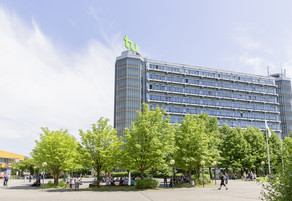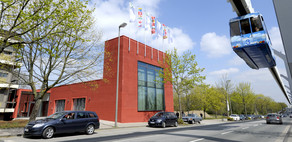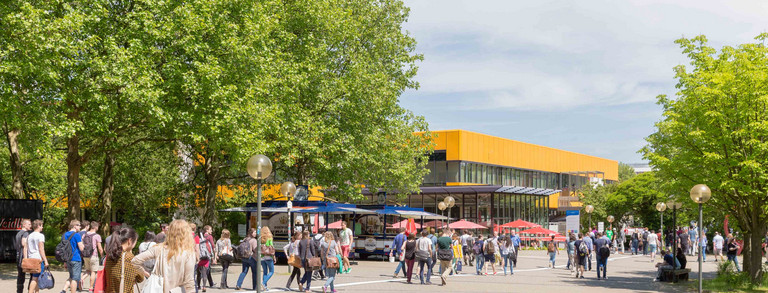Utilisation Concept
"TU Dortmund University promotes international scientific exchange. As a place of research, it competes internationally in science and brings the international dimension of research, teaching and work closer to its students.
TU Dortmund University maintains and develops its scientific, economic, political and cultural ties with the city of Dortmund and the region. It also performs its tasks in science with responsibility towards the economic and cultural change of the region." (Preamble of the Charter of TU Dortmund University, dated November 1, 2007)
Until now, international students on the campus of TU Dortmund University have lacked an offer to integrate themselves into university life and the social environment of the university outside of their studies. With the International Meeting Center (IBZ), TU Dortmund University has now created a place where contacts between students can be established and lasting personal relationships and friendships can be developed. Different cultures, traditions and languages promote innovation in research, teaching and business on our campus.
1. General objectives and benefits of the IBZ
1.1 Benefits for German students
The concept of "Internationalization at Home" aims to offer students the opportunity to gain international experience on their home campus. The internationalization of the university is not only reflected in the implementation of study- or research-related stays abroad but also the high proportion of foreign students, international lecturers and the introduction of English-language courses of study represent a potential from which German students who do not plan a stay abroad can benefit.
As an opportunity to gain international experience, the focus is on communication with foreign fellow students. However, only few German students have frequent and intensive contact with international students. This is not so much due to disinterest and distancing attitudes, but mostly to a lack of encounters and opportunities. Instead, current studies suggest that German students are very interested in getting to know foreign students, e.g. through events or by becoming a mentor. In order to respond to this willingness at TU Dortmund University, the IBZ should create opportunities for encounters, offer impulses for action and promote communication. In general, the IBZ will increase the awareness of international topics and concerns, and thereby quantitatively expand and qualitatively improve the international orientation of German students.
1.2 Benefits for international students
By taking greater account of the individual needs of international students, the IBZ improves study conditions. The meeting center is thus also a building block to accompany and support the study success of this group.
The IBZ offers international students both a "home" and a platform and can make a decisive contribution to integration and exchange. The permanence of the institution is also to be emphasized, helping to anchor international activities and to further strengthen the internationalization process.
1.3 Benefits for the economy, the city of Dortmund and the region
The IBZ is used by the local economy as a meeting point for exchange with international partners and as a contact exchange with students. The IBZ is aimed at regional companies and also at international companies. It enables contacts with students and provides international information about economy, science, culture and society. The IBZ will also serve to strengthen the networking of TU Dortmund University. The international potential will be synergetically bundled and made visible here, for example by awarding prizes to socially committed international students. International and internationally interested students enter into dialogue with actors from culture, business and society. The IBZ should become an international figurehead for the city of Dortmund. The IBZ serves as a mediating agency for international contacts, a central contact point for international and intercultural expertise in the region, a venue for scientific conferences with an international focus and a place for project weeks in cooperation with schools in the region.

![Eat & Read [Translate to English:]](/storages/international/r/Bilder/Veranstaltungen/Eat___Read/waffel_plain_buecherturm.jpg)









